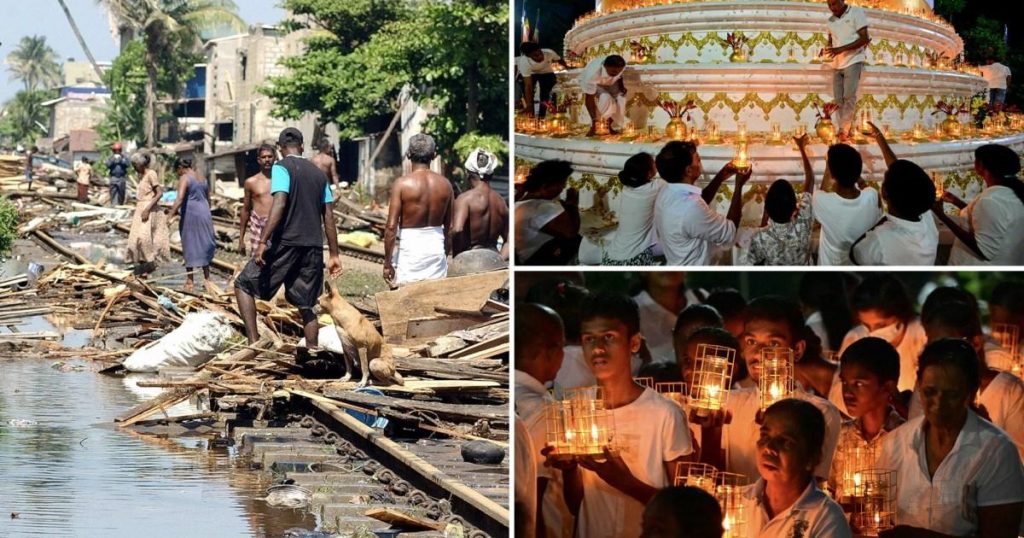The 20th Anniversary of the Boxing Day Tsunami: Remembering the Devastating Impact and Honoring the Victims
Two decades have passed since the catastrophic Boxing Day Tsunami, a natural disaster that etched itself into the annals of history as one of the most devastating events of the 21st century. On December 26, 2004, a colossal magnitude 9.1 earthquake off the coast of Sumatra, Indonesia, unleashed a series of monstrous waves that radiated across the Indian Ocean, leaving a trail of destruction and claiming the lives of at least 228,000 people across multiple countries. Indonesia, Sri Lanka, India, and Thailand bore the brunt of the tsunami’s fury, witnessing the highest number of fatalities. The disaster not only caused immense loss of life but also displaced millions, obliterated entire communities, and triggered a global humanitarian response of unprecedented scale.
The 20th anniversary of this tragic event was marked by somber memorials and remembrance ceremonies across the affected regions. In Thailand, where the tsunami claimed over 5,000 lives, survivors and families of victims gathered in Phuket and Phang Nga provinces, the areas hardest hit by the surging waves. They laid flowers, lit candles, and offered prayers at the sites where the tsunami’s impact was most profound, including the Ban Nam Khem Tsunami Memorial Park. The ceremonies were not merely expressions of grief but also served as powerful reminders of the fragility of life and the importance of disaster preparedness.
One particularly poignant story emerged from the commemorations: Sharon Howard, who lost her fiancé and two young sons in Khao Lak, returned to Thailand to honor their memory. Despite the emotional turmoil of revisiting the site of her immeasurable loss, Howard felt compelled to make the journey, emphasizing the deeply personal nature of grief and the individual ways in which people cope with tragedy. Her presence underscored the enduring pain and emotional scars that the tsunami inflicted on countless individuals and families.
The tsunami’s devastation extended far beyond the immediate loss of life. Millions were displaced from their homes, their livelihoods shattered, their communities irrevocably altered. The sheer scale of destruction overwhelmed local resources and necessitated a massive international aid effort. Countries around the world mobilized to provide emergency relief, medical assistance, and financial support to the affected nations. The global response demonstrated the capacity for human compassion and cooperation in the face of immense suffering.
The long-term impacts of the tsunami continue to reverberate two decades later. While physical reconstruction has progressed in many areas, the psychological scars remain deep. Many survivors still grapple with the trauma of losing loved ones, witnessing unimaginable destruction, and experiencing the sheer terror of the waves. The anniversary serves as a poignant reminder of the need for ongoing mental health support for those who continue to bear the emotional burden of the disaster.
Beyond the immediate aftermath, the tsunami also spurred significant advancements in disaster preparedness and early warning systems. The tragedy exposed critical gaps in the ability to predict and respond to such events, leading to the development of more sophisticated monitoring technologies and evacuation procedures. These advancements have undoubtedly saved lives in subsequent natural disasters, demonstrating that even amidst immense tragedy, there is the potential for learning and progress. The story of Wanwisa Nonthong, who lost three family members in the tsunami, exemplifies this proactive approach. She has since dedicated herself to learning about tsunamis, utilizing earthquake warning apps, and practicing evacuation drills, empowering herself and others to be better prepared for future disasters.
The 20th anniversary of the Boxing Day Tsunami provides an opportunity not only to remember the victims and acknowledge the immense suffering caused by the disaster, but also to reflect on the lessons learned and the strides made in disaster preparedness. The commemorations serve as a testament to the resilience of the human spirit and the enduring power of hope in the face of adversity. They also reinforce the critical importance of continued investment in early warning systems, community education, and international cooperation to mitigate the impact of future natural disasters and protect vulnerable populations. The stories of survivors and the efforts to improve preparedness underscore the enduring legacy of the Boxing Day Tsunami, a tragedy that forever changed the world’s understanding of disaster and its capacity for compassion.


